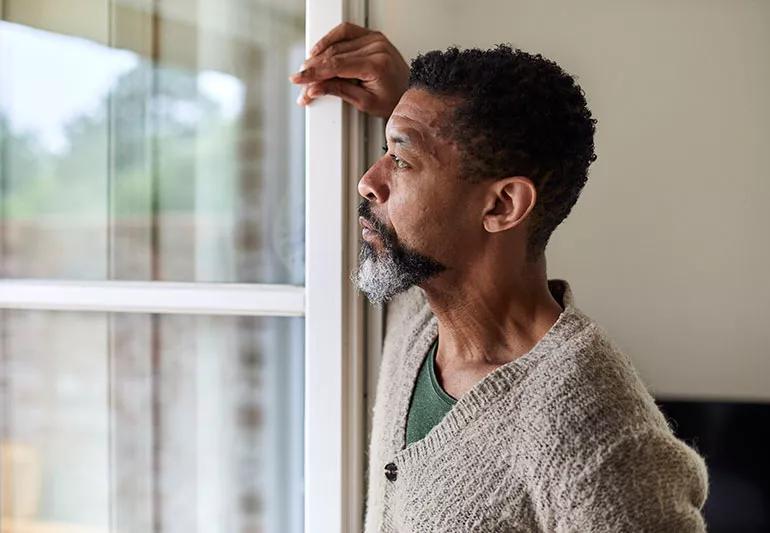Get the short answer from an infectious disease specialist

Image content: This image is available to view online.
View image online (https://assets.clevelandclinic.org/transform/7bd12fd8-f2ba-40ad-ba6e-e60afdba5a5f/QuarantineAfterVaccine-1171712738-770x533-1_jpg)
Person looking wistfully out a window with one hand raised above head resting on sill
Q: If you’ve been exposed to COVID-19 but have received one or both doses of the vaccine, do you still need to quarantine?
Advertisement
Cleveland Clinic is a non-profit academic medical center. Advertising on our site helps support our mission. We do not endorse non-Cleveland Clinic products or services. Policy
A: The CDC recently issued public health recommendations for vaccinated persons. While the efficacies of the vaccines give us reasons to be optimistic (94.1% for Moderna’s and 95% for Pfizer’s), the recommendations suggest that vaccinated people still need to take the necessary precautions to protect themselves and others from COVID-19.
It’s important to keep in mind that if you’ve been partially or fully vaccinated, that doesn’t necessarily mean that you’re off the hook when it comes to quarantining after being exposed to the virus. According to the CDC, there are three criteria that you need to meet before you can consider not quarantining. They include:
If you don’t meet those three qualifications, and you have to meet all three, it’s best for you quarantine for at least 10 days without testing or seven days if you’ve tested negative for COVID. If you want to take extra precautions, you can quarantine for 14 days.
Advertisement
While the vaccines have been proven to be highly effective, there are still a few unknowns. Right now, the medical community is still trying to get a better understanding of how long protection lasts and how effective the vaccines are in reducing transmission. Also, the efficacy of the vaccines against emerging SARS-CoV-2 variants is still being studied.
This is part of a larger topic of “now that I am vaccinated what can I do?” But for the time being, think of the vaccine as another layer of protection. You still need to wear a mask, maintain distance, etc., but things will get better.
— Infectious disease physician, Thomas Fraser, MD
Advertisement

Sign up for our Health Essentials emails for expert guidance on nutrition, fitness, sleep, skin care and more.
Learn more about our editorial process.
Advertisement
The short answer: It’s complicated, but the basic care precautions still prevail, like washing your hands and isolating if you’re sick
They can feel like a typical headache or a migraine headache, but the pain can last for weeks to months
Any large social gathering — from a family birthday party to an indoor music concert — has the potential to spread serious infection
It’s important to connect with a healthcare provider, get quality sleep and balance your activities with your energy levels
Just like the flu, COVID-19 will continue to evolve every year
The duration varies, but symptoms can linger for a few days up to a couple weeks or more
Vaccination is best for prevention, but if you get sick with COVID-19, treatments are available
The virus lives best in humans, but it can last on hard surfaces, like doorknobs and railings
Type 2 diabetes isn’t inevitable with these dietary changes
Applying a hot or cold compress can help with pain
Pump up your iron intake with foods like tuna, tofu and turkey